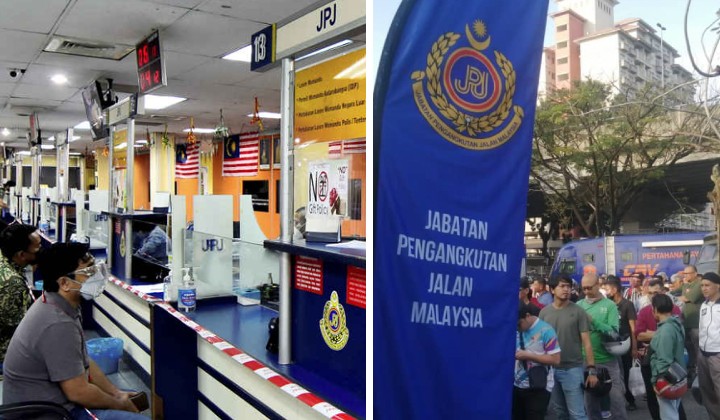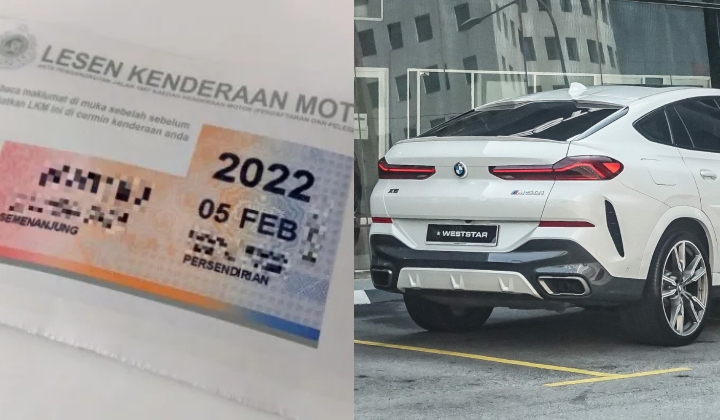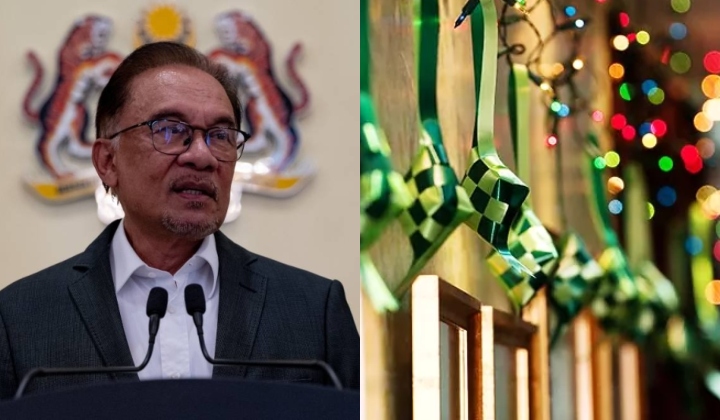Waiting Game: Five-Hour Queue At JPJ Counter
Frustrated Malaysians are trapped in a bureaucratic nightmare, facing excruciatingly long wait times at JPJ counters.

Subscribe to our FREE Newsletter, or Telegram and WhatsApp channels for the latest stories and updates.
In a scene that has become all too familiar for Malaysians, the Road Transport Department (JPJ) counters at the Urban Transformation Centre (UTC) in Kuala Terengganu were packed with disgruntled citizens on Thursday.
A couple waited up to five hours to complete vehicle-related transactions, and many were seen waiting, some of them sitting on the floor.
Sinar Harian reported that Wan Nur Mohainizawati Wan Mohamad, 42, from Dungun, arrived at the UTC at 10 a.m. and only completed her vehicle ownership transfer by 3 p.m.
She had to cancel her children’s tuition classes and wait the entire day. “I didn’t expect the process to take so long,” she lamented.
The overcrowding has been attributed to the centre’s popularity among customers from far-flung areas and its extended operating hours.
Azmi Harun, 50, from Ajil, Hulu Terengganu, expressed his shock at the crowd, noting that the situation was much better two to three years ago.
Due to the long wait times, Muhd Azizul Kamarudin Mazlan, 40, had to visit the counters for two consecutive days.
He observed that even the JPJ State Office in Terengganu was equally crowded, with only two counters operating despite the large number of waiting customers.
The JPJ Jam: A Symptom of Malaysia’s Public Service Malaise
Government departments’ notorious reputations have been shaped by bureaucratic red tape, outdated systems, and a lack of customer-centric approaches.
The JPJ, in particular, has been criticized for its slow and cumbersome processes.
Long wait times can occur, particularly during peak periods or high demand for specific services.
The frustration caused by these wait times has occasionally led to quarrels between the public and counter staff, further highlighting the need for improved customer service and more efficient processes.
Experts point to several factors contributing to the inefficiency, including a lack of technology adoption, poor resource allocation, and a culture prioritising following procedures over-delivering results.
The government has pledged to improve public services, but slow progress has left Malaysians frustrated and disillusioned.
As the queues at JPJ counters continue to grow, Malaysians wonder when they will finally see a government that prioritizes their needs.
The waiting game at JPJ serves as a stark reminder of the urgent need for reform in the public service sector, and the government must act swiftly to restore the trust and confidence of its citizens.
JPJ’s Strides Towards Modernization: A Glimmer of Hope Amidst Inefficiency
However, it is worth noting that the JPJ has been making efforts to improve under Transport Minister Anthony Loke’s leadership.
One notable initiative is introducing the driving test without an instructor, which aims to streamline the process and reduce the likelihood of corruption.
Additionally, JPJ has introduced online services through the MyJPJ app, allowing users to renew their driving licenses and road tax from the comfort of their homes.
The public has welcomed these moves as steps in the right direction.
As these initiatives gain traction and more improvements are implemented, Malaysians can look forward to a future where interactions with the JPJ are characterized by convenience, fairness, and reliability.
The journey towards transforming the JPJ into a truly modern and efficient institution may be challenging, but it is undoubtedly achievable with strong leadership and a commitment to change.
Share your thoughts with us via TRP’s Facebook, Twitter, Instagram, or Threads.





